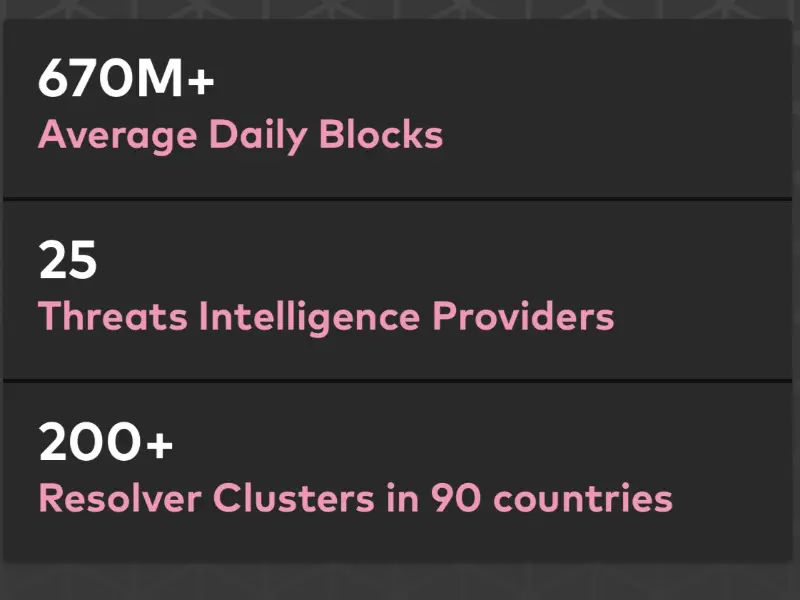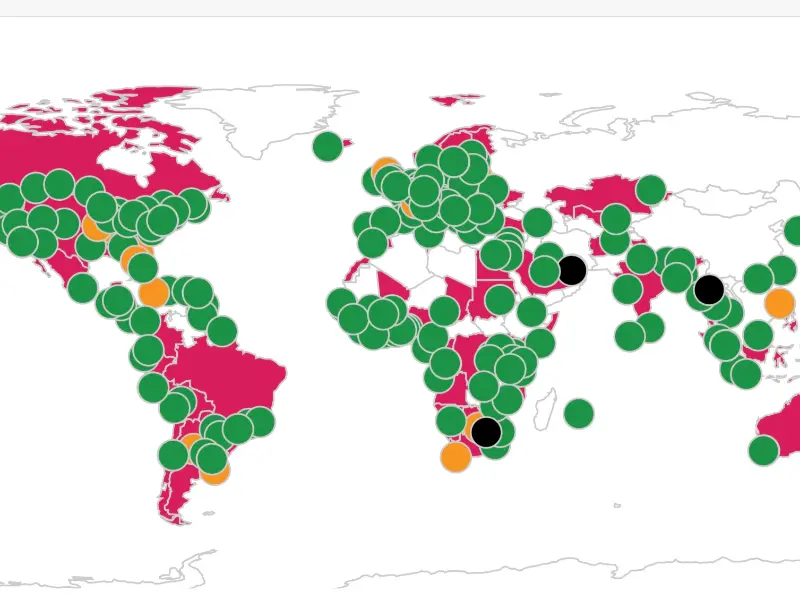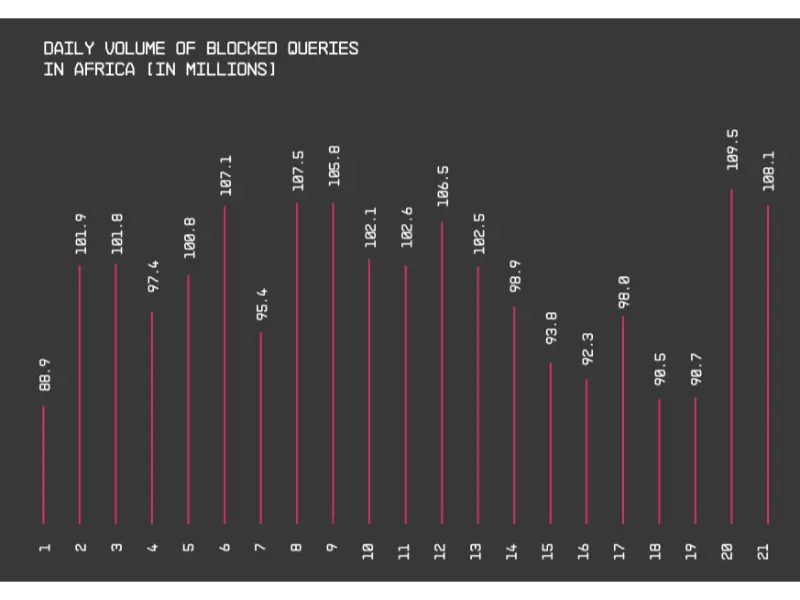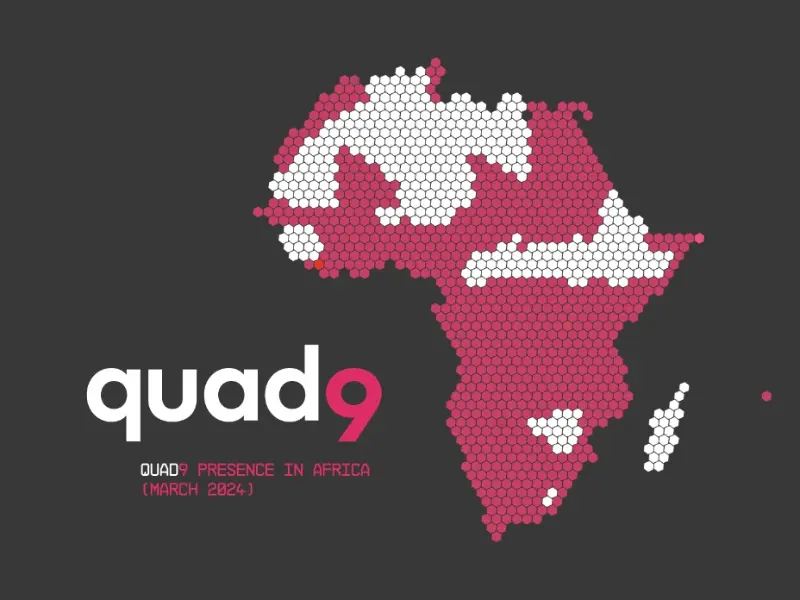- Quad9 is a global DNS service that delivers enhanced network security measures, privacy protection, and improved Internet performance.
- The Quad9 security system has successfully protected users in Africa from phishing attacks such as apisgoogle and Google.apisgoogle.
OUR TAKE:
Wide-ranging benefits have been brought about by the fast expansion of Internet connectivity throughout Africa, but cybercriminals have also profited greatly from this development. Nonetheless, as organisations and governments move to put cybersecurity policies into place and create a workforce that is trained to handle these difficulties, there is an increasing awareness of cyber risks.
African customers have been shielded from a range of cyberthreats, such as malware, phishing, tracking software, and fraudulent advertising, by the Quad9 service.
—-Fei Wang, BTW Reprter
Enhance the user experience with Quad9
Quad9, a global DNS provider, offers enhanced privacy protection, heightened network security, and expedited Internet access. Its ability to block access to hazardous websites is paramount for fostering the Internet economy in Africa. Quad9 significantly enhances online security for both consumers and enterprises. For instance, it effectively thwarts ransomware, malware, and phishing scams, crucial for safeguarding sensitive data handled by institutions such as governments, hospitals, and schools. Installing Quad9 emerges as a cost-effective and highly efficient strategy to bolster digital security, performance, and privacy across Africa.

At the moment, Quad9 has systems in over 200 locations across more than 90 countries. With intentions for even more significant growth, Quad9 already operates in more than 40 sites throughout 30 African nations. The fact that the Quad9 system is situated in the same country lowers the possibility of jamming or interception much further. Furthermore, Quad9 has the system installed at regional data centre sites where packet delivery is equally quick and secure due to the proximity of an extensive regional end-user network and the transport provider.

Quad9 safeguards computers, mobile devices, and other Internet systems from an array of cyber threats by leveraging continuously updated threat intelligence to intercept DNS requests for malicious host names. Whenever a connected device utilizing Quad9’s services attempts to access a website harboring malware, Quad9 diligently operates in the background to thwart connection attempts, effectively shielding its users from malware infections.
Also read: What is AFRINIC? The role and challenges of the African Regional Internet Registry
This report presents an overview of the security threats mitigated by Quad9 DNS for current users in Africa between March 1 and March 21, 2024. Overall, Quad9 intercepted over 2.1 billion malicious queries across Africa, averaging 100 million queries per day:

Common threats to Internet in Africa
The Quad9 security system has effectively shielded users in Africa from phishing attacks like apisgoogle and Google.apisgoogle. This deceptive tactic involves criminals utilizing emails, text messages, or counterfeit websites to craft seemingly authentic messages, aiming to deceive users into disclosing sensitive personal information such as passwords, credit card details, or social security numbers. Once acquired, this information can be exploited for further cyberattacks or identity theft.
Also read: CMC Networks satellites respond to African subsea cable damage
However, our cybersecurity challenges extend beyond phishing. The Omnatour network may orchestrate malicious advertising campaigns targeting vulnerable websites. In such attacks, a user visits a legitimate website infected with malicious code, which then operates in the background to distribute unwanted and potentially hazardous advertisements to the victim, appearing as pop-up windows or intrusive push notifications. Of particular concern is the proliferation of tracking software targeting African users. Disguised as everyday utility apps, such as calculators or calendars, these malicious applications clandestinely pilfer users’ sensitive personal data, wielding it as a tool for stalking, potentially resulting in issues like harassment, extortion, or identity theft. The most insidious aspect lies in the tracking software’s ability to subtly disguise itself, lurking within seemingly innocuous applications.
In conclusion
Over the years, hacker attacks of Internet users is becoming more and more easy, low cost is becoming more and more. As Africa enters the digital age, it urgently needs to strengthen cybersecurity measures to protect its growing online space. Quad9 is continuously working to strengthen global cybersecurity measures aimed at enhancing the security and stability of the Internet. As Africa into the digital era, it Quad9 for Africa is a kind of low cost and high power solutions. By blocking connections to malicious websites, Quad9 eliminates the risk before it can be downloaded to a computer or before a victim sees a fraudulent website. Failure to reach the malicious host means that defense or user-based detection is never invoked.
About Quad9
Quad9 is a non-profit organization based in Switzerland, with the primary objective of safeguarding end users from potential harm while providing them with secure and private access to DNS resources, all at no cost.
Quad9 effectively blocks known malicious domains, thereby preventing computers and IoT devices from connecting to malware or phishing websites. Each time a Quad9 user clicks on a website link or enters an address into a web browser, Quad9 conducts a thorough check of the site against a comprehensive list of domain names sourced from over 20 different threat intelligence partners. These partners contribute lists of malicious domains based on heuristics that analyze various factors such as scanned malware findings, historical cyber IDS behavior, visual object recognition, optical character recognition (OCR), site structure and links to other sites, as well as individual reports of suspicious or malicious activity. Based on the results obtained from this analysis, Quad9 either resolves or rejects lookup attempts, effectively preventing connections to malicious sites when there is a match.









